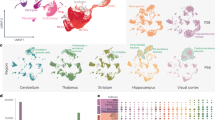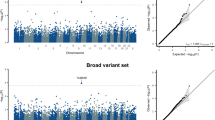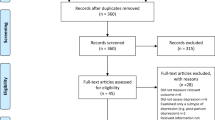Abstract
Tryptophan hydroxylase isoform 2 (TPH2) is expressed in serotonergic neurons in the raphe nuclei, where it catalyzes the rate-limiting step in the synthesis of the neurotransmitter serotonin. In search for functional polymorphisms within the TPH2 gene locus, we measured allele-specific expression of TPH2 mRNA in sections of human pons containing the dorsal and median raphe nuclei. Differences in allelic mRNA expression – referred to as allelic expression imbalance (AEI) – are a measure of cis-acting regulation of gene expression and mRNA processing. Two marker SNPs, located in exons 7 and 9 of TPH2 (rs7305115 and rs4290270, respectively), served for quantitative allelic mRNA measurements in pons RNA samples from 27 individuals heterozygous for one or both SNPs. Significant AEI (ranging from 1.2- to 2.5-fold) was detected in 19 out of the 27 samples, implying the presence of cis-acting polymorphisms that differentially affect TPH2 mRNA levels in pons. For individuals heterozygous for both marker SNPs, the results correlated well (r=0.93), validating the AEI analysis. AEI is tightly associated with the exon 7 marker SNP, in 17 of 18 subjects. Remarkably, expression from the minor allele exceeded that of the major allele in each case, possibly representing a gain-of-function. Genotyping of 20 additional TPH2 SNPs identified a haplotype block of five tightly linked SNPs for which heterozygosity is highly correlated with AEI and overall expression of TPH2 mRNA. These results reveal the presence of a functional cis-acting polymorphism, with high frequency in normal human subjects, resulting in increased TPH2 expression levels. The SNPs that correlate with AEI are closely linked to TPH2 SNPs previously shown to associate with major depression and suicide.
This is a preview of subscription content, access via your institution
Access options
Subscribe to this journal
Receive 12 print issues and online access
$259.00 per year
only $21.58 per issue
Buy this article
- Purchase on Springer Link
- Instant access to full article PDF
Prices may be subject to local taxes which are calculated during checkout






Similar content being viewed by others
References
Fitzpatrick PF . Tetrahydropterin-dependent amino acid hydroxylases. Annu Rev Biochem 1999; 68: 355–381.
Lucki I . The spectrum of behaviors influenced by serotonin. Biol Psychiatry 1998; 44: 151–162.
Ressler KJ, Nemeroff CB . Role of serotonergic and noradrenergic systems in the pathophysiology of depression and anxiety disorders. Depress Anxiety 2000; 12 (Suppl 1): 2–19.
Walther DJ, Peter JU, Bashammakh S, Hortnagl H, Voits M, Fink H et al. Synthesis of serotonin by a second tryptophan hydroxylase isoform. Science 2003; 299: 76.
Zill P, Buttner A, Eisenmenger W, Moller HJ, Ackenheil M, Bondy B . Analysis of tryptophan hydroxylase I and II mRNA expression in the human brain: A post-mortem study. J Psychiatr Res 2007; 41: 168–173.
Bach-Mizrachi H, Underwood MD, Kassir SA, Bakalian MJ, Sibille E, Tamir H et al. Neuronal tryptophan hydroxylase mrna expression in the human dorsal and median raphe nuclei: major depression and suicide. Neuropsychopharmacology 2006; 31: 814–824.
Breidenthal SE, White DJ, Glatt CE . Identification of genetic variants in the neuronal form of tryptophan hydroxylase (TPH2). Psychiatr Genet 2004; 14: 69–72.
Zhou Z, Peters EJ, Hamilton SP, McMahon F, Thomas C, McGrath PJ et al. Response to Zhang et al. (2005): loss-of-function mutation in tryptophan hydroxylase-2 identified in unipolar major depression. Neuron 2005; 45: 11–16; 48: 702–703; author reply 705–706.
Zhang X, Beaulieu JM, Gainetdinov RR, Caron MG . Functional polymorphisms of the brain serotonin synthesizing enzyme tryptophan hydroxylase-2. Cell Mol Life Sci 2006; 63: 6–11.
Yan H, Yuan W, Velculescu VE, Vogelstein B, Kinzler KW . Allelic variation in human gene expression. Science 2002; 297: 1143.
Bray NJ, Buckland PR, Owen MJ, O’Donovan MC . Cis-acting variation in the expression of a high proportion of genes in human brain. Hum Genet 2003; 113: 149–153.
Pinsonneault J, Nielsen CU, Sadee W . Genetic variants of the human H+/dipeptide transporter PEPT2: analysis of haplotype functions. J Pharmacol Exp Ther 2004; 311: 1088–1096.
Wang D, Johnson AD, Papp AC, Kroetz DL, Sadee W . Multidrug resistance polypeptide 1 (MDR1, ABCB1) variant 3435C>T affects mRNA stability. Pharmacogenet Genom 2005; 15: 693–704.
Zhang Y, Wang D, Johnson AD, Papp AC, Sadee W . Allelic expression imbalance of human mu opioid receptor (OPRM1) caused by variant A118G. J Biol Chem 2005; 280: 32618–32624.
Lim JE, Papp A, Pinsonneault J, Sadee W, Saffen D . Allelic expression of serotonin transporter (SERT) mRNA in human pons: lack of correlation with the polymorphism SERTLPR. Mol Psychiatry 2006; 11: 649–662.
Barrett JC, Fry B, Maller J, Daly MJ . Haploview: analysis and visualization of LD and haplotype maps. Bioinformatics 2005; 21: 263–265.
Zhou Z, Roy A, Lipsky R, Kuchipudi K, Zhu G, Taubman J et al. Haplotype-based linkage of tryptophan hydroxylase 2 to suicide attempt, major depression, and cerebrospinal fluid 5-hydroxyindoleacetic acid in 4 populations. Arch Gen Psychiatry 2005; 62: 1109–1118.
Saffen D, Mieda M, Okamura M, Haga T . Control elements of muscarinic receptor gene expression. Life Sci 1999; 64: 479–486.
Zuker M . Mfold web server for nucleic acid folding and hybridization prediction. Nucleic Acids Res 2003; 31: 3406–3415.
Conde L, Vaquerizas JM, Santoyo J, Al-Shahrour F, Ruiz-Llorente S, Robledo M et al. PupaSNP Finder: a web tool for finding SNPs with putative effect at transcriptional level. Nucleic Acids Res 2004; 32: W242–W248.
Cartegni L, Chew SL, Krainer AR . Listening to silence and understanding nonsense: exonic mutations that affect splicing. Nat Rev Genet 2002; 3: 285–298.
Wang ET, Kodama G, Baldi P, Moyzis RK . Global landscape of recent inferred Darwinian selection for Homo sapiens. Proc Natl Acad Sci USA 2006; 103: 135–140.
Ebmeier KP, Donaghey C, Steele JD . Recent developments and current controversies in depression. Lancet 2006; 367: 153–167.
Zill P, Baghai TC, Zwanzger P, Schule C, Eser D, Rupprecht R et al. SNP and haplotype analysis of a novel tryptophan hydroxylase isoform (TPH2) gene provide evidence for association with major depression. Mol Psychiatry 2004; 9: 1030–1036.
Zhang X, Gainetdinov RR, Beaulieu JM, Sotnikova TD, Burch LH, Williams RB et al. Loss-of-function mutation in tryptophan hydroxylase-2 identified in unipolar major depression. Neuron 2005; 45: 11–16.
Harvey M, Shink E, Tremblay M, Gagne B, Raymond C, Labbe M et al. Support for the involvement of TPH2 gene in affective disorders. Mol Psychiatry 2004; 9: 980–981.
Mossner R, Walitza S, Geller F, Scherag A, Gutknecht L, Jacob C et al. Transmission disequilibrium of polymorphic variants in the tryptophan hydroxylase-2 gene in children and adolescents with obsessive-compulsive disorder. Int J Neuropsychopharmacol 2006; 9: 437–442.
Mossner R, Freitag CM, Gutknecht L, Reif A, Tauber R, Franke P et al. The novel brain-specific tryptophan hydroxylase-2 gene in panic disorder. J Psychopharmacol 2006; 20: 547–552.
Walitza S, Renner TJ, Dempfle A, Konrad K, Wewetzer C, Halbach A et al. Transmission disequilibrium of polymorphic variants in the tryptophan hydroxylase-2 gene in attention-deficit/hyperactivity disorder. Mol Psychiatry 2005; 10: 1126–1132.
Sheehan K, Lowe N, Kirley A, Mullins C, Fitzgerald M, Gill M et al. Tryptophan hydroxylase 2 (TPH2) gene variants associated with ADHD. Mol Psychiatry 2005; 10: 944–949.
Coon H, Dunn D, Lainhart J, Miller J, Hamil C, Battaglia A et al. Possible association between autism and variants in the brain-expressed tryptophan hydroxylase gene (TPH2). Am J Med Genet B Neuropsychiatr Genet 2005; 135: 42–46.
Zill P, Buttner A, Eisenmenger W, Moller HJ, Bondy B, Ackenheil M . Single nucleotide polymorphism and haplotype analysis of a novel tryptophan hydroxylase isoform (TPH2) gene in suicide victims. Biol Psychiatry 2004; 56: 581–586.
De Luca V, Mueller DJ, Tharmalingam S, King N, Kennedy JL . Analysis of the novel TPH2 gene in bipolar disorder and suicidality. Mol Psychiatry 2004; 9: 896–897.
De Luca V, Voineskos D, Wong GW, Shinkai T, Rothe C, Strauss J et al. Promoter polymorphism of second tryptophan hydroxylase isoform (TPH2) in schizophrenia and suicidality. Psychiatry Res 2005; 134: 195–198.
De Luca V, Hlousek D, Likhodi O, Van Tol HH, Kennedy JL, Wong AH . The interaction between TPH2 promoter haplotypes and clinical-demographic risk factors in suicide victims with major psychoses. Genes Brain Behav 2006; 5: 107–110.
Mergen H, Demirel B, Akar T, Senol E . Lack of association between the serotonin transporter and tryptophan hydroxylase gene polymorphisms and completed suicide. Psychiatr Genet 2006; 16: 53.
Garriock HA, Allen JJ, Delgado P, Nahaz Z, Kling MA, Carpenter L et al. Lack of association of TPH2 exon XI polymorphisms with major depression and treatment resistance. Mol Psychiatry 2005; 10: 976–977.
Van Den Bogaert A, De Zutter S, Heyrman L, Mendlewicz J, Adolfsson R, Van Broeckhoven C et al. Response to Zhang et al. (2005): loss-of-function mutation in tryptophan hydroxylase-2 identified in unipolar major depression. Neuron 2005; 45: 11–16; 48: 704; author reply 705–706.
Glatt CE, Carlson E, Taylor TR, Risch N, Reus VI, Schaefer CA . Response to Zhang et al. (2005): loss-of-function mutation in tryptophan hydroxylase-2 identified in unipolar major depression. Neuron 2005; 45: 11–16; 48: 704–705; author reply 705–706.
Delorme R, Durand CM, Betancur C, Wagner M, Ruhrmann S, Grabe HJ et al. No human tryptophan hydroxylase-2 gene r441h mutation in a large cohort of psychiatric patients and control subjects. Biol Psychiatry 2006; 60: 202–203.
Brown SM, Peet E, Manuck SB, Williamson DE, Dahl RE, Ferrell RE et al. A regulatory variant of the human tryptophan hydroxylase-2 gene biases amygdala reactivity. Mol Psychiatry 2005; 10: 884–888, 805.
Canli T, Congdon E, Gutknecht L, Constable RT, Lesch KP . Amygdala responsiveness is modulated by tryptophan hydroxylase-2 gene variation. J Neural Transm 2005; 112: 1479–1485.
Herrmann MJ, Huter T, Muller F, Muhlberger A, Pauli P, Reif A et al. Additive effects of serotonin transporter and tryptophan hydroxylase-2 gene variation on emotional processing. Cereb Cortex 2006; 26 June [Epub ahead of print].
Heils A, Teufel A, Petri S, Seemann M, Bengel D, Balling U et al. Functional promoter and polyadenylation site mapping of the human serotonin (5-HT) transporter gene. J Neural Transm Gen Sect 1995; 102: 247–254.
Lesch KP, Bengel D, Heils A, Sabol SZ, Greenberg BD, Petri S et al. Association of anxiety-related traits with a polymorphism in the serotonin transporter gene regulatory region. Science 1996; 274: 1527–1531.
Whitaker-Azmitia PM . Serotonin and brain development: role in human developmental diseases. Brain Res Bull 2001; 56: 479–485.
Gaspar P, Cases O, Maroteaux L . The developmental role of serotonin: news from mouse molecular genetics. Nat Rev Neurosci 2003; 4: 1002–1012.
Caspi A, Sugden K, Moffitt TE, Taylor A, Craig IW, Harrington H et al. Influence of life stress on depression: moderation by a polymorphism in the 5-HTT gene. Science 2003; 301: 386–389.
Munafo MR, Clark TG, Roberts KH, Johnstone EC . Neuroticism mediates the association of the serotonin transporter gene with lifetime major depression. Neuropsychobiology 2006; 53: 1–8.
Pinsonneault JK, Papp AC, Sadee W . Allelic mRNA expression of X-linked monoamine oxidase a (MAOA) in human brain: dissection of epigenetic and genetic factors. Hum Mol Genet 2006; 15: 2636–2649.
Acknowledgements
This project was supported by NIDA 1R21 DA108744 (to WS), the Department of Pharmacology and a grant from the Psychiatric Research Foundation, Columbus Ohio (to DS). We thank Greg Young, Center for Biostatistics, Ohio State University for statistical analyses, Audrey Papp for advice on genotyping and AEI measurements, Andrew Johnson for help with computer program-related issues, and Gloria Smith for technical assistance with many of the assays.
Author information
Authors and Affiliations
Corresponding authors
Additional information
Supplementary Information accompanies the paper on the Molecular Psychiatry website (http://www.nature.com/mp)
Rights and permissions
About this article
Cite this article
Lim, JE., Pinsonneault, J., Sadee, W. et al. Tryptophan hydroxylase 2 (TPH2) haplotypes predict levels of TPH2 mRNA expression in human pons. Mol Psychiatry 12, 491–501 (2007). https://doi.org/10.1038/sj.mp.4001923
Received:
Revised:
Accepted:
Published:
Issue Date:
DOI: https://doi.org/10.1038/sj.mp.4001923
Keywords
This article is cited by
-
Testing Genetic Modifiers of Behavior and Response to Atomoxetine in Autism Spectrum Disorder with ADHD
Journal of Developmental and Physical Disabilities (2018)
-
Effect of childhood general traumas on suicide attempt depends on TPH2 and ADARB1 variants in psychiatric patients
Journal of Neural Transmission (2017)
-
Evidence for genetic regulation of mRNA expression of the dosage-sensitive gene retinoic acid induced-1 (RAI1) in human brain
Scientific Reports (2016)
-
The genetic architecture of autism spectrum disorders (ASDs) and the potential importance of common regulatory genetic variants
Science China Life Sciences (2015)
-
Interaction among childhood trauma and functional polymorphisms in the serotonin pathway moderate the risk of depressive disorders
European Archives of Psychiatry and Clinical Neuroscience (2014)



